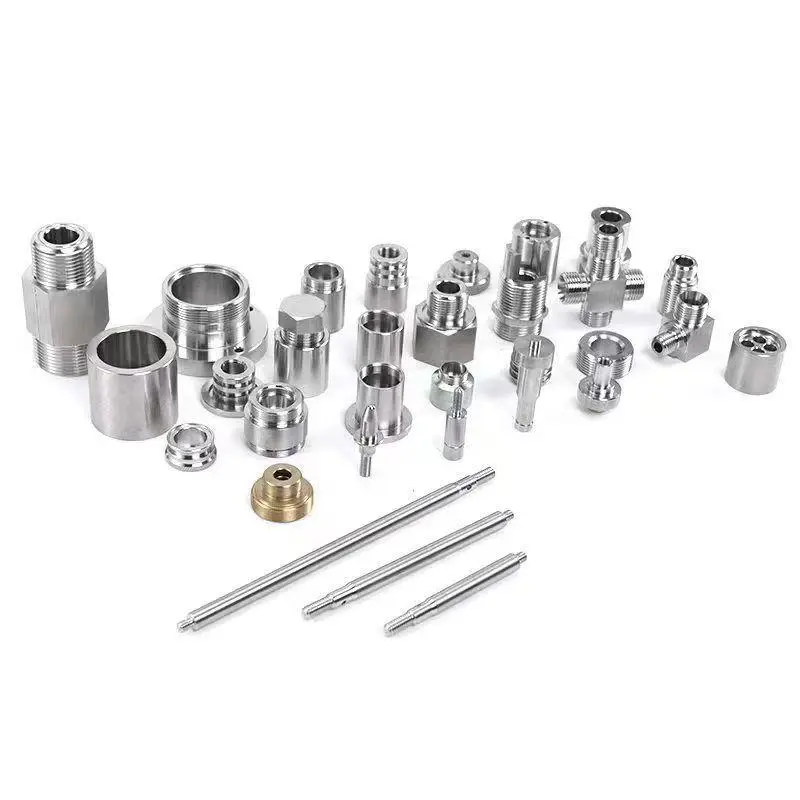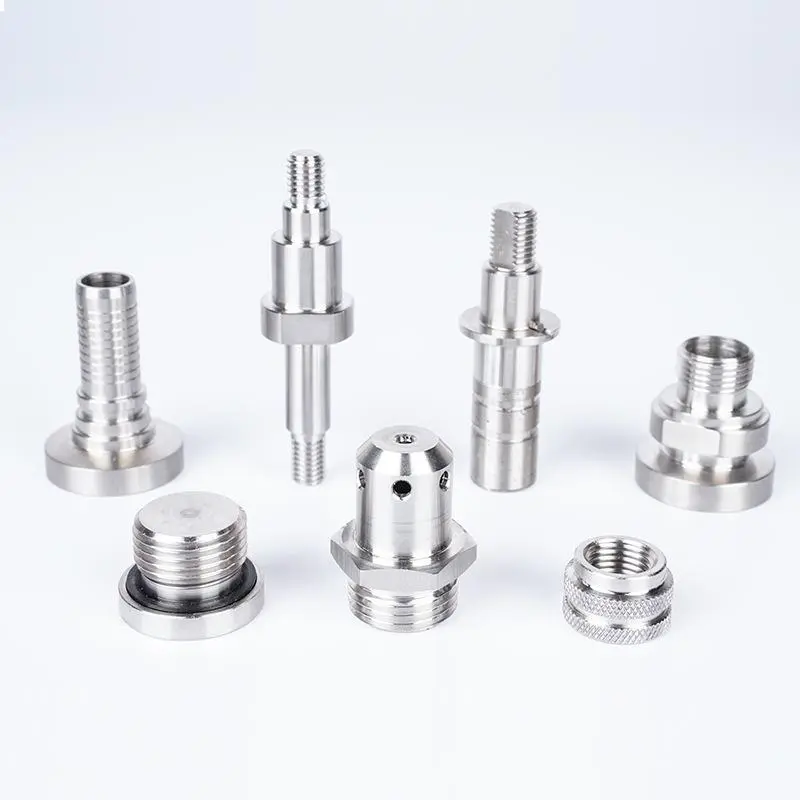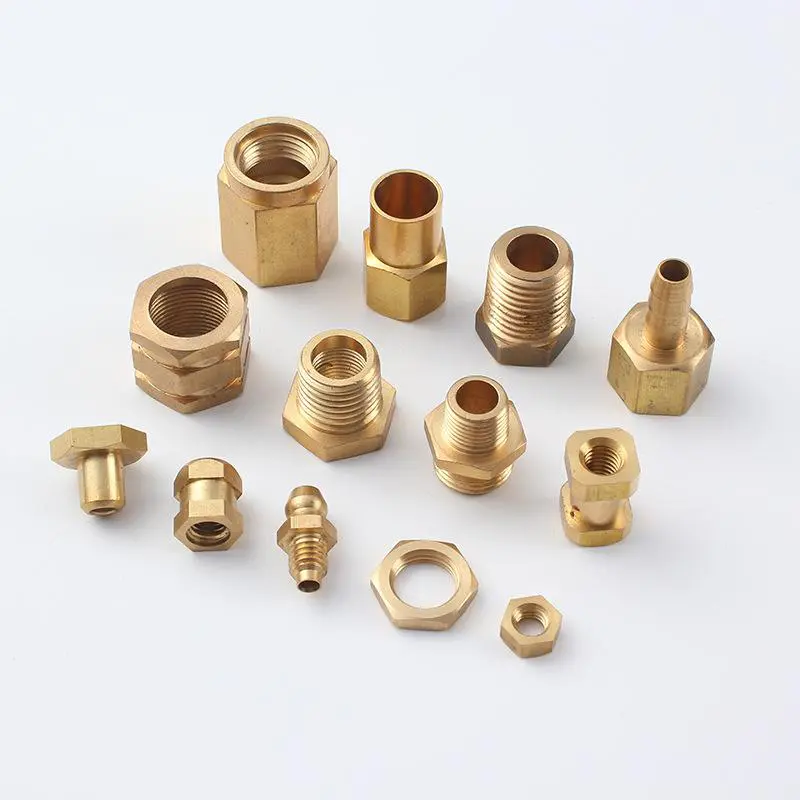Mastering Precision Parts for Advanced Manufacturing
Published Time:
2025-09-23
In the fast-evolving landscape of manufacturing, precision parts play a pivotal role in ensuring that machines and systems operate at their highest potential. These meticulously crafted components are essential in the mechanical processing and machining of various products, where accuracy and reliability are non-negotiable.
Precision parts are designed to meet stringent specifications, which significantly influence the overall performance of machinery and equipment. In industries where tolerances are tight and failure is not an option, the accuracy of these components is vital. Whether you're machining gears, shafts, or brackets, the precision of each part directly impacts the assembly and functionality of the final product. This level of precision reduces wear and tear, minimizes the risk of mechanical failure, and ultimately contributes to a longer lifespan for the equipment.
One of the key advantages of using precision parts is the enhancement of operational efficiency. Components manufactured to exact specifications ensure that machinery runs smoothly, with minimal downtime. When parts fit perfectly, the need for adjustments and maintenance decreases, leading to increased productivity. This is particularly important in high-speed operations, where even minor discrepancies can result in significant delays and added costs.
Moreover, the use of precision parts can lead to cost savings in the long run. While the initial investment in high-quality components might be higher, the reduction in maintenance expenses and the increased lifespan of machinery often outweigh these costs. Furthermore, precision parts can lead to reduced scrap rates during production, as they are less likely to fail or require rework.
In the realm of mechanical processing, the choice of materials used in the production of precision parts is also crucial. High-quality materials not only contribute to the durability of the components but also enhance their performance under various operating conditions. Manufacturers often utilize advanced techniques and technologies, such as CNC machining or additive manufacturing, to create precision parts that meet the specific needs of different applications.
As industries continue to evolve, the demand for precision parts is expected to grow. Innovations in manufacturing processes and technologies will further enhance the production capabilities and performance of these components. Companies that prioritize precision in their manufacturing processes will be better positioned to meet customer expectations and maintain a competitive edge in the market.
In conclusion, precision parts are indispensable in the manufacturing sector, particularly within mechanical processing. Their role in enhancing product quality, operational efficiency, and cost-effectiveness cannot be overstated. By understanding the significance of precision parts and investing in high-quality, accurately manufactured components, manufacturers can achieve superior performance and reliability in their operations.
Precision parts are designed to meet stringent specifications, which significantly influence the overall performance of machinery and equipment. In industries where tolerances are tight and failure is not an option, the accuracy of these components is vital. Whether you're machining gears, shafts, or brackets, the precision of each part directly impacts the assembly and functionality of the final product. This level of precision reduces wear and tear, minimizes the risk of mechanical failure, and ultimately contributes to a longer lifespan for the equipment.
One of the key advantages of using precision parts is the enhancement of operational efficiency. Components manufactured to exact specifications ensure that machinery runs smoothly, with minimal downtime. When parts fit perfectly, the need for adjustments and maintenance decreases, leading to increased productivity. This is particularly important in high-speed operations, where even minor discrepancies can result in significant delays and added costs.
Moreover, the use of precision parts can lead to cost savings in the long run. While the initial investment in high-quality components might be higher, the reduction in maintenance expenses and the increased lifespan of machinery often outweigh these costs. Furthermore, precision parts can lead to reduced scrap rates during production, as they are less likely to fail or require rework.
In the realm of mechanical processing, the choice of materials used in the production of precision parts is also crucial. High-quality materials not only contribute to the durability of the components but also enhance their performance under various operating conditions. Manufacturers often utilize advanced techniques and technologies, such as CNC machining or additive manufacturing, to create precision parts that meet the specific needs of different applications.
As industries continue to evolve, the demand for precision parts is expected to grow. Innovations in manufacturing processes and technologies will further enhance the production capabilities and performance of these components. Companies that prioritize precision in their manufacturing processes will be better positioned to meet customer expectations and maintain a competitive edge in the market.
In conclusion, precision parts are indispensable in the manufacturing sector, particularly within mechanical processing. Their role in enhancing product quality, operational efficiency, and cost-effectiveness cannot be overstated. By understanding the significance of precision parts and investing in high-quality, accurately manufactured components, manufacturers can achieve superior performance and reliability in their operations.
NewsCenter
Beijing Pafinal Precision Machinery Co., Ltd.
Email:sales@pafinal.com

Address: No. 239 Huanhe South Road, Tianjin Pilot Free Trade Zone (Airport Economic Zone), Tianjin
中企跨境-全域组件
制作前进入CSS配置样式
sales@pafinal.com:
Whatsapp:
在线客服添加返回顶部
图片alt标题设置: PAFINAL
表单验证提示文本: Content cannot be empty!
循环体没有内容时: Sorry,no matching items were found.
CSS / JS 文件放置地




 2025-09-24
2025-09-24

